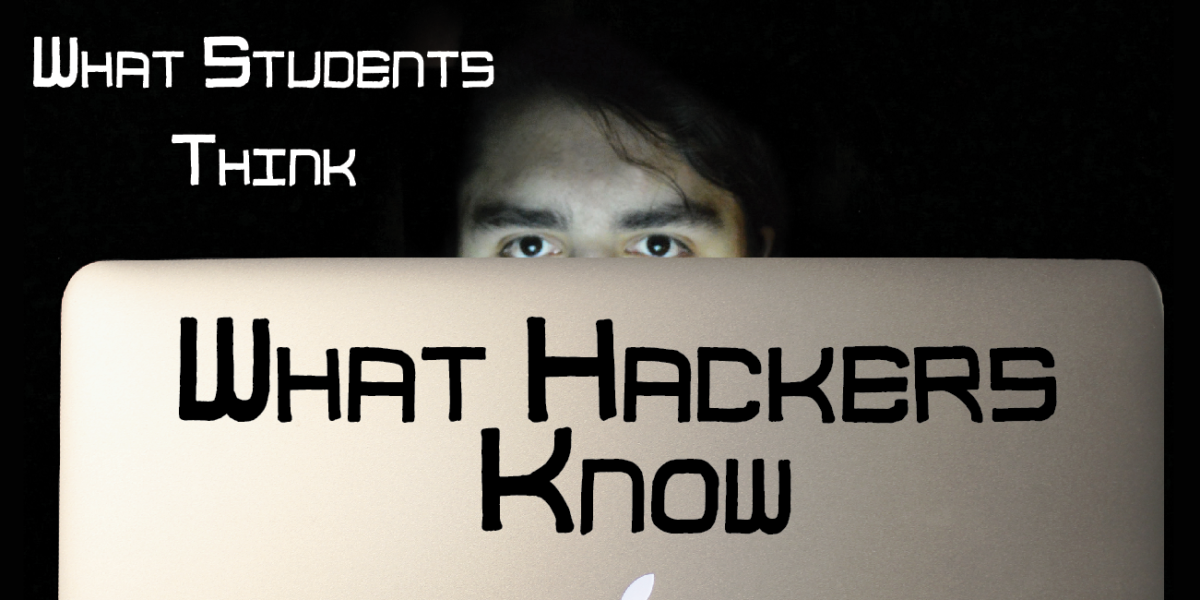By Sofia Paloka and Brooke Holland, Centerfold Editors
@bhollandCourant @SPalokaCourant
After a long day as a New Canaan High School student, many find themselves retreating to the quiet comfort of their bed with a computer on their lap and phone in hand ready to unwind. With Netflix streaming the latest episode of Friends and scrolling through Facebook on their phone, most couldn’t imagine a better way to destress. On one lazy afternoon, student *Paul was startled to find Safari unresponsive and a faded wifi symbol at the top of his computer screen. Little did he know this wasn’t simply a loose power cord or bad connection, but an unknown source had taken down his internet. Not only that, but the source had fully destroyed his router.
What Students Think
In general, teenagers tend to have a basic understanding of the internet; be careful with what you post, make sure the beer logo is blurred out, and don’t put anything in writing that you’ll regret someday. This concern originates from the idea that colleges or future employers will see you doing something you’re not supposed to, and affect you negatively in the future. Student *Sarah knows what she wants the world to see, and what she’d rather keep more on the down low. “Everyone sees what I post. Instagram is private but not Facebook, so creepy kids can’t see what I post. But the pictures I post on Instagram the company has the right to take and use for whatever. I think the pictures in my camera roll are very private, at least I’m hoping they’re private”.
Another student, *Lucy had a similar opinion on the matter. “I have my fake instagram and my real instagram. The pictures in my camera roll better be private. But then again I think we all know that the answer is the government can see everything,” she said.
However, other student *Liam feels a little differently about the subject of privacy, meaning he doesn’t mind having all his social profiles be open to the public. . “I don’t have any private accounts, I keep the privacy settings off. I don’t have any posts I really care about people seeing. The stuff in my camera roll is private. No one is allowed to see that. My texts and all personal stuff that I’m not posting online is private”.
What Hackers Know
At NCHS there are some students who have taken the time to study coding and programming, so they understand a portion of what goes on behind the screen. They know how to read things like Javascript, which also gives them the power to manipulate people’s devices and internet. Because of this, they understand the dangers associated with the internet that students are completely unaware of. Student *Rob believes that people need to be much more aware of these risks. “The incompetence that everyone has thinking they’re okay is honestly hilarious. All you have to do is read for ten minutes and you’ll learn how easy it is for your email to get hacked by someone, or your wifi, or any other device,” he said.
He continued this statement by giving a few examples of what he’s done with the knowledge. “I have broken some routers by simply writing a few lines of code and sending packets to the routers. I’ve done this to two people I know, and then probably five to twelve people that I don’t know and met through video games,” he said. “The ones that I did to people from video games were malicious because I needed to shut them off. I have messed with my neighbors wifi but not broken their routers. There was also a time I took down the schools wifi,” he said.
Despite the risk of being hacked that our information is subject to everyday, being young generally also means students don’t posses a lot of information others would be after such as insurance information, financial records, credit card information, etc.. Because of this, *Liam doesn’t see a need for teenagers to be particularly stressed. “An average student understands they are vulnerable just like the average adult, they just don’t care because they have no need to. They don’t have passwords to bank accounts and they don’t manage a companies,” he said.
“I don’t think they should be worried. High schoolers and college students are bad targets for black hat hackers (people with extensive computer abilities who could essentially get into any devices), they simply aren’t rich enough. Hackers want money, so they go to large corporations or powerful CEOs to make it worth their time.”
Despite not being at high risk currently, as we grow older, having a basic knowledge for coding and programming is something that is going to grow in importance. *Rob feels strongly about it being a common course offered by schools. “People need to take this more seriously. I think it should be a graduation requirement to take at least one year of some sort of computer science course because it’s in everything and no one knows what it is, no one knows the dangers behind the screen.”




